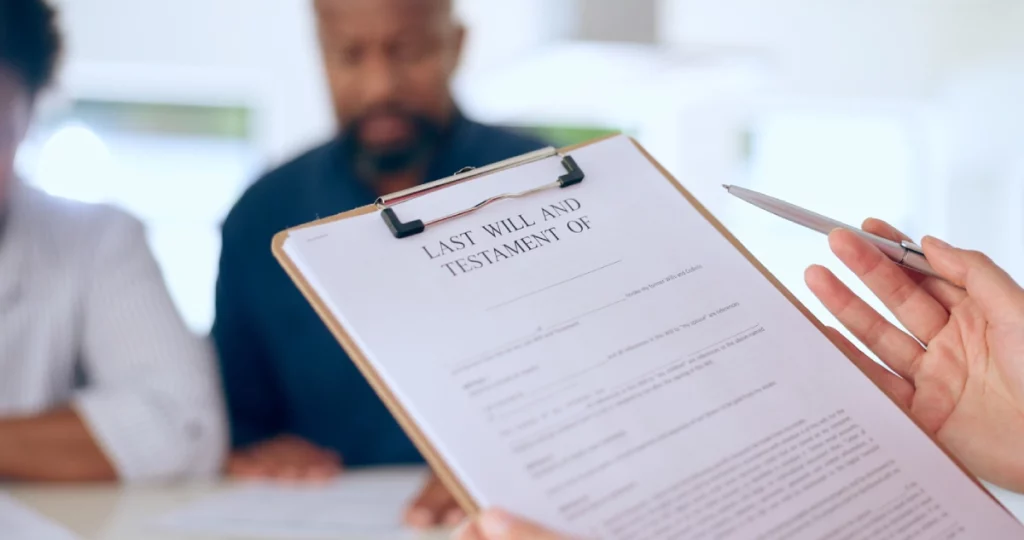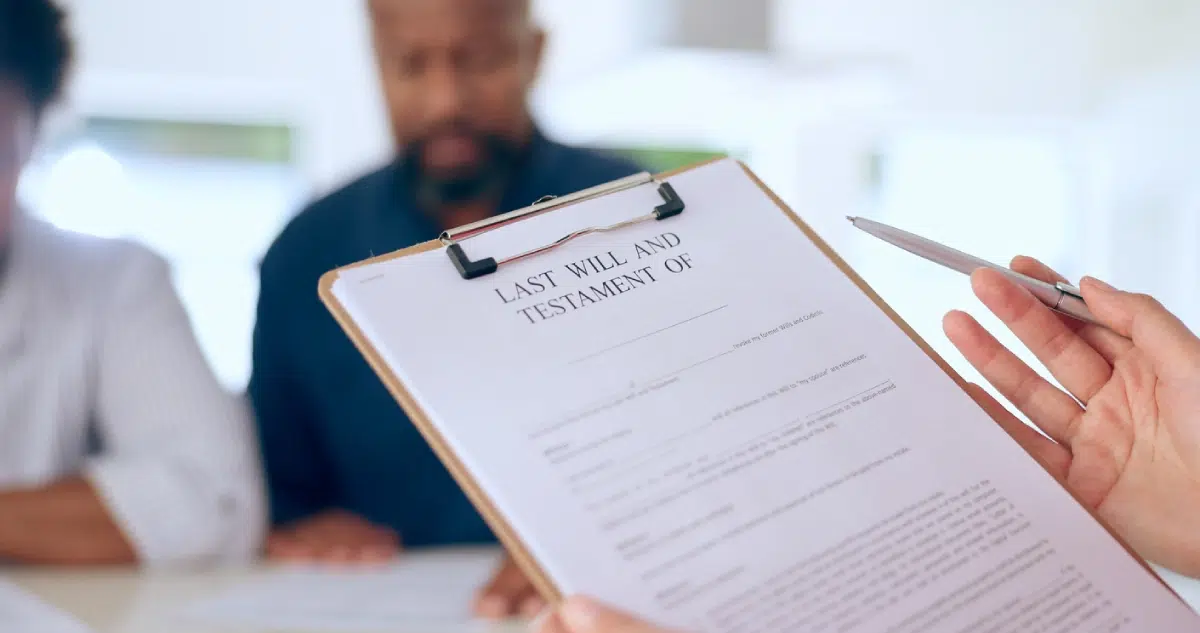
Planning for the future can feel like one of those things you keep meaning to do, but never quite get around to. It might feel complicated, a little intimidating, or maybe just not urgent. Or maybe it sounds like something only retirees or wealthy families need. But the truth is, estate planning is for everyone, and it’s a lot more approachable than you might think.
Think of estate planning like writing a love letter to your family. You’re making sure they know what to do, how to handle things, and how to honor your wishes.
Basically, estate planning is your opportunity to prepare for the unexpected, protect your loved ones, and make sure your wishes are followed no matter what tomorrow holds. These things should be done on your terms and from a tax advantageous perspective.
You might be thinking, “But I don’t think I can handle it on my own. I need legal counsel. How do I find the right estate planning attorney?”
In this guide, we will explain how you can find an attorney who truly gets you and your goals.
At Lappin Estate Planning, we regularly speak with people just like you. Parents, retirees, business owners, newlyweds—you name it. And what they all want is pretty simple: peace of mind. They want to know their family is going to be okay, no matter what life throws their way. We’re pretty sure this is your goal, too.
Need a consultation with an estate planning attorney? Call us now at (561)-778-8590 to talk.
Understanding Estate Planning
We talk to people all the time who think they don’t need an estate plan because they’re not ultra-high-net-worth or retired. But here’s the thing—if you have anything you care about, or anyone you care about, you need a plan.
Whether it’s your house, brokerage account, your business, your kids, your crypto, or your art … you deserve a say in what happens to it all.
Estate planning gives you that say. It’s your opportunity to make decisions in advance, rather than leaving your family scrambling to figure things out in a crisis.
And unfortunately, that’s what happens far too often when there’s no plan in place—loved ones are left grieving, confused, and sometimes even fighting in court over what you “would have wanted.”
An estate plan typically includes key documents like a Will, Revocable Trust, Durable Power of Attorney, and healthcare directives. But it’s not just paperwork. It’s a personalized strategy designed to reflect your goals, your values, and your life.
Benefits of Estate Planning in Florida
Florida isn’t just great for its beaches and sunshine. When it comes to estate planning, the Sunshine State offers some serious advantages that make planning here particularly worthwhile.
Here are the benefits that make Florida estate planning particularly valuable:
- Homestead protection: Florida’s homestead protection is legendary. Your home gets incredible protection from creditors’ claims, allowing you to pass this valuable asset to your loved ones with powerful shields in place.
- Tax-friendly: Wave goodbye to state estate taxes and income taxes. Florida residents enjoy freedom from these financial burdens, meaning more of your hard-earned money stays with your family instead of going to the government.
- Probate avoidance options: Nobody wants their family stuck in probate court for months (or years). Florida law provides excellent tools like Revocable Trusts that can help your loved ones avoid the time, expense, and public nature of probate entirely.
- Healthcare decision security: A well-crafted Florida estate plan includes advance directives that ensure YOUR choices about medical care are respected if you can’t speak for yourself. Without these documents, doctors might make decisions that go against your wishes, or your family might fight over what they think you would want.
- Asset protection strategies: Beyond homestead protection, Florida offers other asset protection tools that can safeguard your wealth from potential creditors, lawsuits, and other threats. These protections can be particularly valuable for professionals in high-liability fields.
- Peace of mind: Perhaps the greatest benefit is simply knowing you have taken care of everything.
The bottom line? Florida offers exceptional tools for protecting your assets and your loved ones. But these benefits only help if you actually put a plan in place. The state’s protections aren’t automatic. They require proper legal documentation prepared by someone who understands Florida’s unique laws. That’s an estate planning attorney.
Essential Estate Planning Documents
You’ve probably heard terms like “will,” “trust,” or “power of attorney” thrown around—but what do they really mean? And more importantly, which ones do you actually need?
- Last will and testament: This is probably the first thing that comes to mind when you hear “estate planning.” Your will lets you decide who gets what when you pass away. You can also name a guardian for your minor children. Without a will, Florida law may decide for you, and let’s just say… the outcome might not match what you would’ve chosen.
- Revocable Trust: A Revocable Trust is like a safety net for your assets. You can use it to manage your property while you’re alive and ensure it passes to your beneficiaries when you’re gone, without going through probate. A trust gives you privacy, flexibility, and control, all in one.
- Durable power of attorney: This document lets someone you trust step in and manage your financial and legal affairs. Without it, your family might have to go to court just to take care of basic things on your behalf.
- Healthcare Advance Directive: Have you ever thought about what medical treatments you would or wouldn’t want if you couldn’t speak for yourself? These documents allow others to make Healthcare Decisions on your behalf if you are unable to do so, and you can express your wishes if you are incapacitated and there is no realistic chance of recovery.
- Irrevocable Trusts: For folks who may have estate tax issues, we use Irrevocable Trusts to get assets and future appreciation out of their estates.
It’s easy to put this off, thinking, “I’ll deal with it later.” But the truth is, life doesn’t always wait. At Lappin Estate Planning, we make the process easy to understand and even easier to complete. We will walk you through each document, explain what it does, and help you decide exactly what’s right for your situation.
Creating a Comprehensive Estate Plan
If you’ve ever tried Googling “how to make an estate plan,” you probably ended up with 27 browser tabs open, a headache, and a strong urge to procrastinate. We get it—there’s a lot of information out there, and much of it sounds like it was written for law students, not real people.
But here’s the truth: creating a comprehensive estate plan doesn’t have to be stressful or confusing. In fact, when it’s done right, it can feel like a huge weight off your shoulders.
So, what exactly is a comprehensive plan?
It’s a plan that covers more than just your will. We’re talking about:
- What happens to your property and money after you’re gone
- Who steps in to manage your finances or healthcare if you can’t
- How to keep your family out of court, out of conflict, and out of the dark
- What steps to take to protect vulnerable loved ones like minor children, aging parents, or relatives with special needs
- And how to ensure your legacy—big or small—goes where you want it to go
Here’s how we walk through it together
Step 1: We listen
No judgment and no assumptions. We want to know about your family, your concerns, and your goals. You don’t need all the answers at this point. You just need to be open about what matters to you.
Step 2: We look at the big picture
This includes your assets, debts, real estate, business interests, insurance policies, and cryptocurrency. If it matters to you, it matters to us.
Step 3: We build your plan
Together, we will create the right combination of documents (Wills, Trusts, Durable Powers of Attorney, Healthcare Directives, etc.) that work together and make sense for your specific life and family structure.
Step 4: We help you implement it
We will guide you on how to update your account beneficiaries, retitle property into a trust (if needed), and store everything properly. It’s not just about drafting a plan—it’s about making sure it actually works.
Step 5: We stick around
Your life will change, and your plan should grow with it. We’re here when you need to make updates, ask questions, or navigate new chapters.
How to Choose the Right Estate Planning Attorney?
Choosing an estate planning attorney isn’t just about finding someone with a law degree. It’s about finding the right fit: someone who understands your goals, someone who listens to your concerns, and someone who makes the estate planning process feel more manageable.
This is a personal process. You’re trusting someone with big life decisions. So naturally, you want someone who knows what they’re doing and who makes you feel comfortable, heard, and confident in the process.
So, where should you start?
- Look for experience. Estate planning is its own world within the legal profession. You want someone who focuses on this area exclusively (or almost exclusively). An attorney who regularly handles Wills, Trusts, Healthcare Directives, and Probate will be more up to speed on Florida’s laws, procedures, and pitfalls.
- Ask about their approach. Some attorneys take a cookie-cutter approach to estate planning. That might be fine for some, but most families have unique circumstances (e.g., blended families, family businesses, special needs planning, second marriages, etc.). A good attorney will tailor the plan to your life, not just hand you a template.
- Prioritize communication. You’re not expected to understand all the legal terms or options—that’s your attorney’s job. But a great attorney will take the time to explain things in easy-to-understand terms. You should feel comfortable asking questions, discussing sensitive issues, and reaching out down the road when things seem unclear.
- Consider their process and support. How will the attorney guide you through decisions? Do they help you fund your Trust or update beneficiaries? Do they look at things through a tax lens? Remember: an estate plan is only useful if it’s kept up to date and implemented properly.
- Check reviews and referrals. Ask friends, family, or financial advisors whom they recommend. Read client reviews. What do people say about their experience with the attorney? Were they responsive and easy to work with? You choose the criteria.
And don’t forget the human factor. Sometimes, it just comes down to how you feel when you talk to them. Did they listen? Did they seem rushed or genuinely engaged in helping you protect your future?
At Lappin Estate Planning, we take pride in our commitment to client service. We take the time to understand you, your story, and your goals so we can create a plan that truly fits.
Questions to Ask an Attorney
Walking into an attorney’s office for the first time can feel intimidating. You’re about to discuss personal matters with someone you’ve just met, and you might worry about asking “silly” questions or not knowing enough to make good decisions.
But knowing the right questions to ask can make a big difference.
Think of this like an interview. You’re hiring someone to help protect your loved ones and your legacy. You deserve to know how they work, what to expect, and whether they will be there for you, not just now, but years down the road.
Here’s a list of questions you should absolutely bring to the table, plus what to listen for in the answers:
1. How long have you been practicing estate planning law?
Estate planning involves state-specific laws, ever-changing tax rules, and real-life family dynamics. An attorney who focuses primarily (or exclusively) on estate planning will have a better understanding of how to build a plan that truly works in practice, not just on paper.
2. Do you exclusively practice estate planning and administration, or is it just part of your broader practice?
It’s common for attorneys to handle multiple areas of law. But estate planning isn’t something you want done on the side. Look for someone who dedicates the largest portion of their practice to estate planning.
3. What does your process look like from start to finish?
This question gives you insight into how involved the attorney will be. Do they simply hand you a questionnaire and plug in your answers? Or do they meet with you in person (or virtually) to walk through your goals, ask the right questions, and explain your options? A good attorney should offer a step-by-step plan with plenty of support throughout.
4. Will you help me fund my trust or retitle assets?
Drafting a trust is only the first step. If your assets aren’t retitled into the trust (a process called “funding”), the trust won’t actually avoid probate like it’s supposed to. A thorough attorney will help walk you through funding or handle parts of it for you, making sure your trust is set up correctly and works the way it should.
5. Can you help with beneficiary designations on life insurance and retirement accounts?
Many people don’t realize that certain accounts (e.g., IRAs, 401(k)s, and life insurance) pass directly to the named beneficiaries, regardless of what your will or trust says. Your attorney should be able to help you coordinate your beneficiary designations to match your estate plan. If they don’t, that’s a red flag.
6. How often should I review or update my estate plan?
Ask how frequently they recommend reviews. A good attorney won’t just disappear after the paperwork is signed. They will be there when your life evolves.
8. Do you work with financial advisors, CPAs, or other professionals?
Your attorney may need to coordinate with your accountant or financial planner to ensure your plan aligns with your investments, retirement goals, and tax strategy. An attorney who’s willing to collaborate with your other professionals is a sign that they are serious about getting the whole picture right.
Getting Started with Estate Planning in Florida
You know that feeling when something important keeps hanging over your head, but you’re not sure how to begin, so it just stays there? Estate planning is like that for a lot of people.
You know it matters. You’ve thought about it more than once. If you’ve been waiting for the right moment to get started, this is it.


